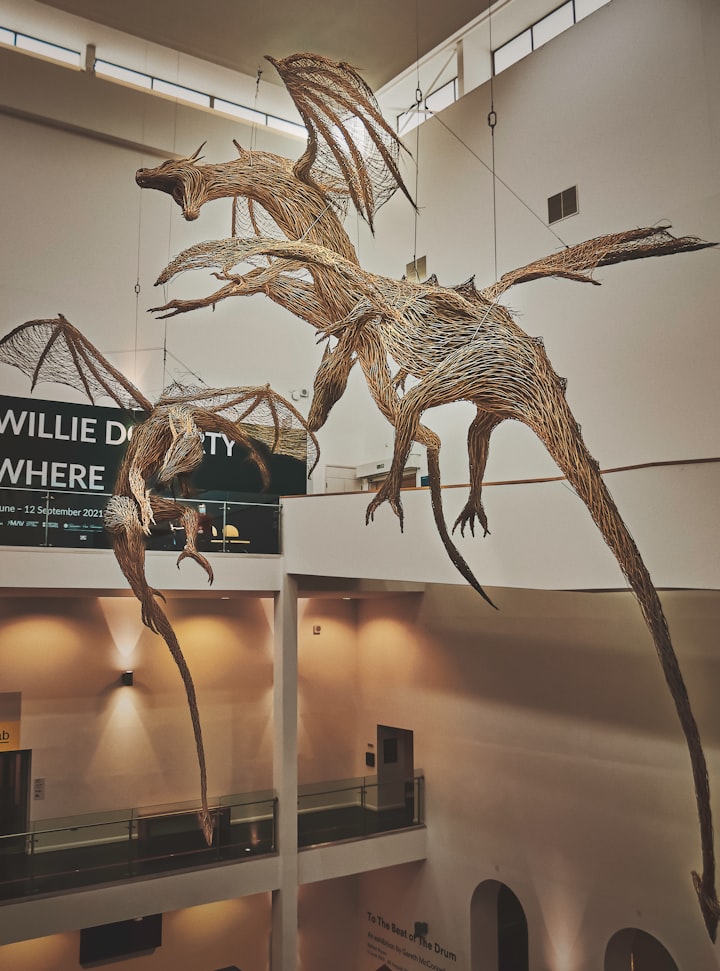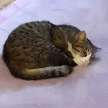
"There weren't always dragons in the valley."
I'm here today to talk to you about this proverb of unknown origin; it has tantalized historians, folklorists, literature buffs, and curious lay researchers alike with many speculating as to its meaning.
Its meaning is unclear due to its lack of precise origin, either in place or in time. Over time, varied interpretations have been offered depending on its pre-supposed origins.
For instance, if one should look at Medieval England, among the nations of Europe. Its national myth is strongly connected to St-George's killing of the dragon that threatened the budding state. Without this achievement, Christianity wouldn't have won England, and it would not have been the country of progress that it later became.

Usually, in European folklore, dragons are known to live underground, amass riches, and be entirely evil and antisocial. They are scaly and tend to resemble flying lizards that can breathe fire. They are both masters of the air and masters of the earth. In tying Christianity to a pagan era, the survival of the dragon was assured.
If one pre-supposes these myths as the origin of the dragon, one could interpret it to mean several things:
"There weren't always dragons in the valley."
One, we were not always blocked, scared, controlled, or constrained with our goods and lives being stolen for the pleasure of a single, albeit magical, individual. The dragon can easily be associated with a Monarchy, that is aided and abetted by a higher power.
Or two, it could refer to the capacity to surmount what seems impossible; every obstacle is a challenge to be met with faith and confidence.
Or three, it could refer to both at once. "We were not always serfs, we were more. There weren't always dragons in the valley. We can get rid of the monster. We've got this!"
The myth of the 'dragon overcome and killed', emboldened Western Europeans to satisfy their curiosity, branching out into the sciences to liberate themselves, and the world, from a perceived monster through education and social justice.
"There weren't always dragons in the valley." Let it sink in for a second.
It is interesting to note the use of valley rather than ocean or mountain; a low place in the landscape, hard to defend, harder still to find a satisfactory cave.
Another possible interpretation of this proverb finds its inspiration in Ancient Chinese tradition. In China, this ancient legendary energy is necessary and good. The dragon features in a multitude of myths, legends, and festivities. He is part of the horoscope and possesses magical skills that must be mastered.
The dragon represents strength, resilience, resolution, ambition, in a word, success. He is also attractive, fortunate, and secretive. All of these characteristics are positive, and confer privilege, allowing one to assuredly surpass one's station through hard work and determination.

While the Chinese dragon resembles the European one in its basic make-up, such as its scaly skin, the capacity to fly, and magical abilities, it also has striking differences. The Chinese dragon is colorful, dangerous, and yet playful. It is often long, depicted with fearsome fangs, and spikes along its back.
From the vantage of this point of view, one could interpret the proverb to mean, again, several things:
"There weren't always dragons in the valley."
One, we weren't always this successful. Our lives were less comfortable; harder to manage.
Or two, someone in our household is a 'dragon' in the horoscope. It was not always so, but now it is and luck is coming our way.
Or maybe three, the valley had not always been fruitful. And now, it was. The valley had not been strong, or resilient, but now dragons were there, visiting and the valley was strong once more.
They need not be visible in the sky for them to be recognizable in their impact on the soil and vegetation.
"There weren't always dragons in the valley." Think on it for a second.
What would it mean in today's circumstances? Can it be applied to any or all cultures indiscriminately? I invite each of you to ponder these questions at your leisure.
I now open the floor to anyone who may have something to ask, or to add.
Thank you.
"Yes, in the back," the professor pointed.
"Several spaceships have shapes that could be called dragon-like, such as the USS Enterprise. They also have similar travel styles. Would the dragon in this case equate with exploration, wisdom, and power?" The student asked.

Author's note: This is a work of pure fiction. Any situation, or description, that may seem to have actual, verifiable information is completely, and entirely unintentional. It would be interesting to have a book about a dialogue between students and professor, wouldn't it? The idea was to imagine what a lecture in university may be like if there were to be one, and what it's first chapter might be. I have never heard of this proverb and invented all the possible interpretations for the purpose of the story.
About the Creator
Eugenette Morin
I enjoy short stories with a twist, long stories that meander; little snippets that create poems.
I've been writing for a long time, but it's always been left dormant in a notebook.
So now's the time to see if I should take it out.
Reader insights
Outstanding
Excellent work. Looking forward to reading more!
Top insights
Compelling and original writing
Creative use of language & vocab
Easy to read and follow
Well-structured & engaging content
Excellent storytelling
Original narrative & well developed characters
Expert insights and opinions
Arguments were carefully researched and presented
Eye opening
Niche topic & fresh perspectives
On-point and relevant
Writing reflected the title & theme






Comments (7)
Very original
Original story telling for sure.
Thank you everyone
Excellent take on the nature of dragons and love the image you used
Definitely a different take. Very well done.
Fabulous!!😊💕
Very original take on the challenge.